
Sailing - Quick Guide
Sailing - Overview
The art of moving a boat by harnessing the power of wind is known as sailing. As the conditions keep on changing, one need to have mastery over the skills by gaining enough experience. Till 1996, it was known by its old name Yachting. Sailing can be both competitive and recreational. The sailing competition is also known as regatta.
With the power of the wind, the sailor needs to sail his boat to win over other vessels competing in the competition. A sailing competition comprises of multiple individual races such as wind surfing, model boat racing, yacht racing, dinghy racing, and kite surfing. Apart from various events, the boats do have their different categories such as catamarans, dinghies etc. Nevertheless, this sport has its own nail biting and spine chilling excitement.

A Brief History of Sailing
Earlier name of this sport was yachting. It began in 1851 by International Yacht Racing. In 1900, it was introduced into the Olympics held at Paris for the first time. Soon with the advancement in technology and designing, many new boats came into the market. They replaced the heavy boats with the lighter one having the same sailing capacity as the previous one.
The International Sailing Federation has published a set of rules to effectively organize the sport. Until 2012, races were sailed with an older format known as Fleet racing format, in which boats having equally matched fleets used to race around a common course at same time. In 2012, a new format of race was introduced known as match racing event. It is a head to head contest event for women.
Participating Countries
This water sport is popular in many parts of the world and many competitions are held every year. The sport has also been included in Olympics. Different types of racing formats are there in which the participants take part.
Since 1970, sailing is an Asian sport. Many Asian countries like China, Japan, Singapore, Qatar, Sri Lanka, Malaysia, India and many more have their active participation in this sport. In the medal rank China tops the list having total 54 medals in Asian Games, among which 27 are gold. Top five medal winner countries are China, South Korea, Japan, Singapore, Thailand.
Apart from Asian countries, North America, Central and South America, Africa, and Europe have their own club for sailing.
Sailing - Terms
Sailing is a water sport that requires techniques and practice over physical power. So it is important to learn the various techniques to have a great start but before learning the playing techniques, we should be aware of some important parts and terminology of boats and rigs that we are going to face most frequently.
Parts of a Boat
Following are some of the important parts of a sailing boat −
Deck − It is the flat surface area that is present on top of the boat.
Bow − The front of the boat having a narrow shape is often termed as bow.
Cabin Trunk − On the boat, there is a cabin house. The side and roof of this is known as Cabin Trunk.
Port − The part of the boat on the left hand side that faces forward is known as port.
Starboard − The part of the boat on the right hand side facing forward is termed as starboard.
Cockpit − Cockpit is situated at lower side at which tiller is located and also at that position crew positions itself.
Stem − The back-side of the boat is known as the stem.
Hull − The part of the boat that floats on the water is termed as the hull.
Parts of a Rig
Let us now try to figure out some important parts of the rig −
Jib − An attachment to the forestay that gives forward sail is termed as jib.
Mast − It is a vertical spar to which all sails are attached.
Boom − From the mast, a horizontal bar is extended to which foot of the main sail is attached which is known as Boom.
Mainsail − Between the boom and the backside of the mast, a horizontal sail is attached which is called mainsail.
Batten − Inside the pocket of the sail, a fiber glass or wood type structure is given to hold its shape. That piece of structure is known as batten.
Telltales − It is a piece of cloth that is used to show the direction of the wind.
Backstay − To protect the mast from falling, a rigging is connected from the top of the mast to the stem. This is known as backstay.
Sailing - How To Play?
Sailing is a sport which includes different types of races. In some races only two boats are there whereas in other races hundreds of boats are included. The racing distance is from few hundred meters to 3 km. The race depends on the direction of wind and accordingly the players have to sail their boat.
Depending on the type of race, oars are attached to the boat. If there is match racing where only two boats having one player each has to compete, then each boat has two oars one on each side. But if multiple individuals have to sail as in case of fleet racing, then the oars are attached as per the number of players.
Basics of Sailing
Learning of basics in case of sailing does not take so much hard labor unlike other sports but to have mastery over these, is somewhat important. The only way to this is heavy practice. You should always push your limits to learn something new every day.
Using of sheet is the first thing that your instructor will teach you. Through the adjustment of the sheet, 90% of the work is finished. So you should know how to tighten and loosen the sheet properly to have a perfect sailing. A rope that hoists the sail is known as halyard. The tension adjustment of the halyard is also important.
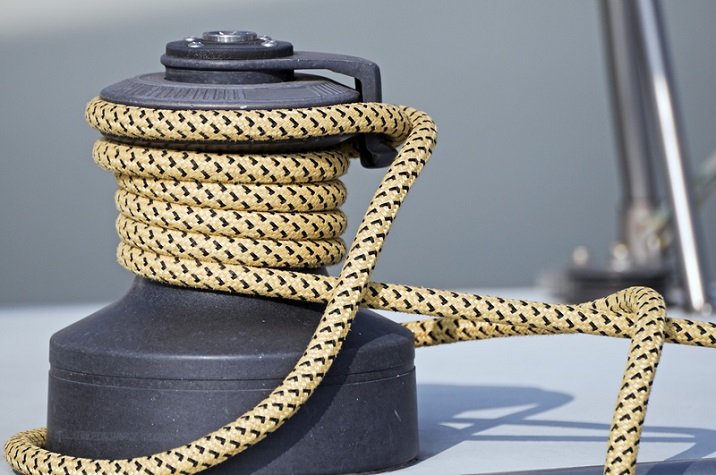
Apart from halyard tension, there are some other factors such as outhaul tension, traveler adjustment, and boom vang tension that require serious attention of a beginner. One should learn new skills, for example, to sail your boat smoothly on a blustery day you can pull the traveler in and make the sheet loose so that the boom can lift in hard winds. This will in turn twist the top of the sail with respect to the bottom and will allow more air to escape.
Advice to Beginners
Listening to the experts advice is good and implementing them in your work sometimes does wonders. So if you are a beginner, you should follow many blogs, watch more videos and talk to the seniors of this line, to get a proper line of path to horn your skills. We have tried to summarize some of the important tips that you may need as a starter.
If you are beginner and on your way to start practicing, then go for a calm and less crowded water. This is because ideal conditions and low traffic are good for practicing.
Instead of going for a big boat, a small boat rather would be a wise choice to practice with one sail and fewer lines.
A practice of safe boating is a must. This includes telling someone of your nearer one before leaving for sailing, bringing a floatation device and to learn it in advance how to use etc.
Sailing solely depends upon the weather conditions. So before leaving, check out the weather forecast and always try to study the tide phenomena which will help you a lot to predict in advance while sailing.
Learn the meaning of different sailing symbols and terms. This is often required to get a quick message from far behind.
Sailing - Racing Formats
Short Course Racing
In this type of racing, a triangular course is marked with a number of buoys. The racing involves one or more laps of the triangular course. An imaginary line is drawn from the committee boat to the pin. A player needs to keep his attention to many warning signals that will be shown by the referee. As a crew, your aim is to cross the starting line as fast as possible.
Some of the longest and famous racing events under this category are −
- Cowes Week
- Olympics
- Mug Race
- Americas Cup
The process in this type of race involves tacking upwind till buoy (windward marker). Then starting from a downwind leg, the crew has to bear away towards the second jibe marker. Another jibe also is made towards the last mark known as downwind mark. After crossing this mark, the boat marches towards the finishing line.
Coastal Inshore Racing
The racing is conducted in an open sight nearby any island or across any open ocean. The race can be conducted in daylight or overnight. Sometimes the race continues for several days also. The equipment required for this racing depends upon the distance to be travelled and the safety measurement. However, the list of equipment is not as large as in case of offshore racing.
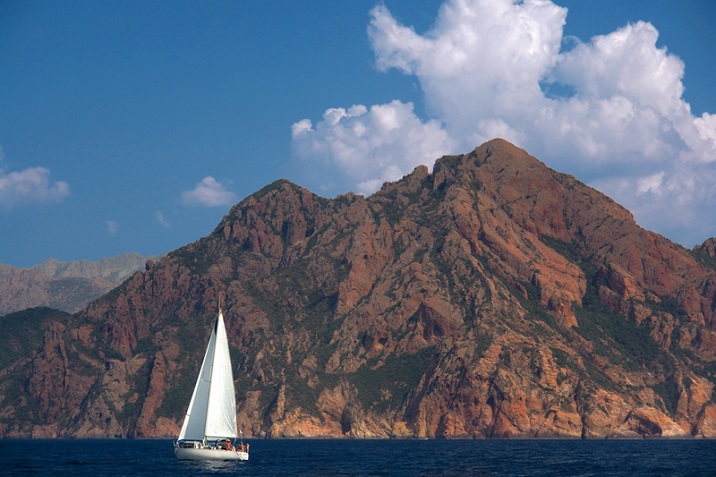
Offshore Races
These types of races are organized in open water for a very long distance which lasts for several hours. Sometime the races continue overnight. So you should pack up with many necessary types of equipment as follows −
- A head torch having red light indication to save your night vision.
- A small GPS versioned PLB
- Tether
- Knee pads (if you are bowman)
- Personal medical kits
- Safety equipment
Some of the famous offshore races are Bermuda race, South Atlantic race, transpacific yacht race, Hamilton island race week and Fastnet race. Sometimes offshore racings are otherwise termed as oceanic racing.
Sailing - Variants
In this chapter, we will discuss in brief about the following variants of Sailing −
- Fleet Racing
- Team Racing
- Match Racing
Let us start with Fleet Racing.
Fleet Racing
In fleet racing, you can compete with minimum four numbers of boats to maximum hundreds of boats. In a regatta, you have to face minimum three races that will be taken into account.
At the end of each event, your boats position will be taken into account. At the completion of the three events, all the positions of your boat will be added to make a total. If your total score is lowest among all other sailors, then you will be declared as a winner.
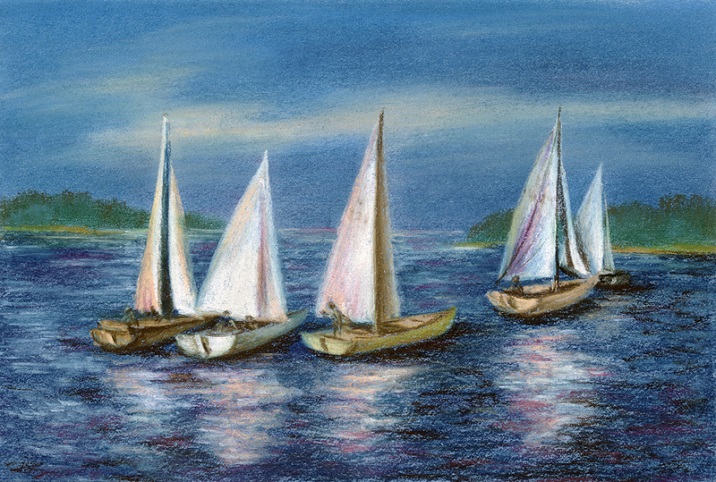
Team Racing
As the name suggests, this is a race between two teams. So you have to form a team of yours comprising of three boats. Same will be the format for your opponent team. Therefore; it is not the individual score, rather it is the group score that matters. An overall score of 10 or less will be a nice score to win.
To maintain a stable combination, teammates use various tactics such as −
- Play one (1-2-anything)
- Play two (2-3-4)
- Play four (1-4-5)
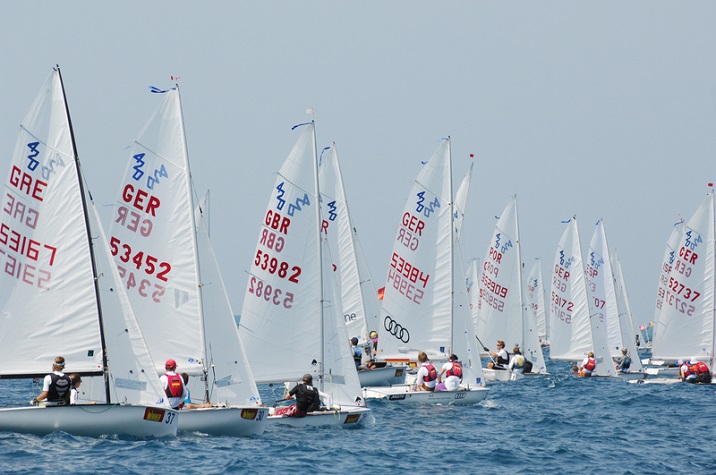
Match Racing
The basic difference between fleet racing and match racing is that in later type of racing unlike the previous one, you have to compete with only one competitor. The sole aim is to reach the finishing line as fast as possible. However, this does not mean that you have to sail fast to reach the finishing line. The tactics involved over here are completely different than other types of racing.
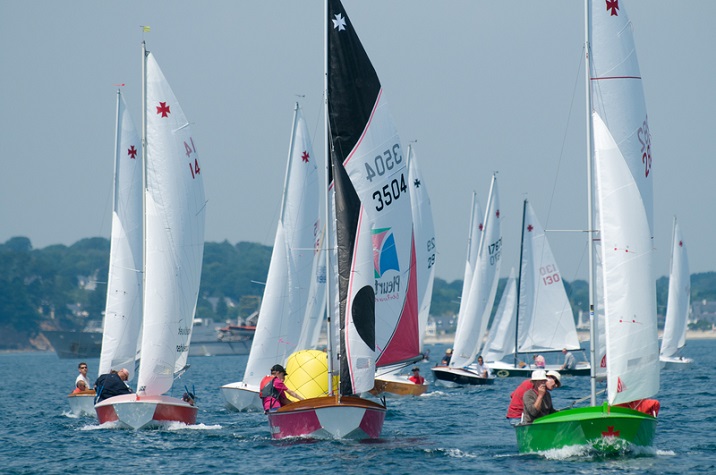
Sailing - Rules
This is a sport where everyone needs to be self-regulated. There is a set of rules that everyone needs to follow and enforce. If a competitor breaks a rule, then as a good sportsmanship he/she should take the penalty promptly. The penalties may be one tack and one gybe turning or two turns consisting of two gybes and two tacks.
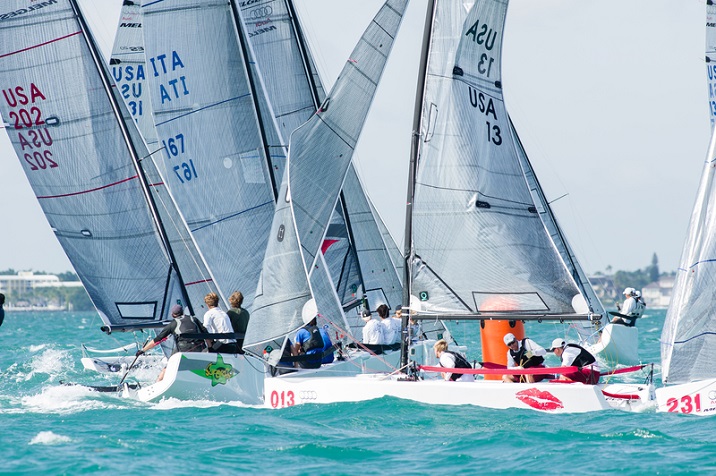
Some major corrections were made in 1997. Now there are 97 rules out of which 15 rules are necessary regarding the movement of boat in the water. Some of these rules are our major concern.
There should be sufficient clear off distance between port tack and starboard tack.
In case the boats are on the same tack and on overlapping condition, the boat which is nearer to wind (windward) should keep a sufficient distance from leeward boat.
In case, the boats are on the same tack but are not overlapped, a boat which is behind should maintain sufficient distance from the boat ahead.
When a boat is changing tack, it should not get in touch with any other boat that is not tacking.
If it seems that the other boat is not keeping a clear distance, then even if you are in your right path of way, should maintain a certain more distance to avoid collision.
It is a sportsmanship type attitude to give the other boats the right of way, once you have achieved yours.
If your boat is changing its course even if being in the right way, then it is your duty to give the burdened boat nearby you for a chance to keep clear.
The sailor must abide by the rules and should follow it failing to which, he may be penalized. The violation of rules lead to any serious damage or injury which can lead to retirement. In case the competitor does not take the penalties, he/she may be disqualified from the whole tournament after a hearing from protest committee.
Sailing - Champions
International Sailing Federation organizes sailing championships worldwide. There are different categories of international championships.
Here we have tried to align them together at one place in a table.
| Category | Championship |
|---|---|
| ISAF (International Sailing Federation) |
|
| Class Championships |
|
| IRSA (International Radio Sailing Association) Championships |
|
| IFDS (International Association for Disabled Sailing) Championship |
|
Let us now take a brief look at the careers of some of the champions of this sport.
Robert Scheidt
Robert Scheidt is a competitor from Brazil. From five Olympic Games, he has won two gold medals, two silver medals and one bronze medal. By 2006, he had already won 125 titles and became the star performer.
He is the first Brazilian athlete to win four consecutive medals in four Olympics. He also won a gold medal in Pan American Games in 1995 and in 1996, he won his first World Championship.
Glenn Ashby
Glenn Ashby is an Australian competitor. He has won nine A Class Catamaran World Championships. Till now he has won 15 gold medals in World Championship in different categories.
In addition, he has also won four silvers and one bronze in World Championship in different categories. He has also won a silver medal in 2008 Olympics in Tornado category. Currently Emirates Team New Zealand is under his captaincy in Americas Cup.
Ben Ainslie
Ben Ainslie plays for Great Britain. From 1996-2012, he won medals consecutively in all five Olympic Games. In 1996 Olympics, he won a silver while in rest he won gold medals.
Ainslie is the first person to win medals in all five different categories of sailing. He has also won eleven gold medals in World Championships. Ainslie is the second person to win four gold medals in this sport.